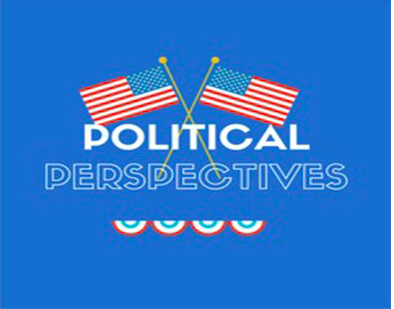Political Perspectives: North Korea calling Trump’s bluff

Genevieve Guenther
Political perspectives is a column that focuses on providing different opinions on important political issues from UNCW students.
Editor’s Note: Jack DeVries is a junior at UNCW studying business. Jack also works as a contributing writer for The Seahawk and is a frequent writer for the Political Perspectives column. All opinions expressed in this article are solely those of the author. All suggestions and inquires may be sent via email to [email protected]
With so much happening domestically, it is easy to forget what goes on abroad. After a rocky few months of mudslinging between President Donald Trump and North Korea’s Foreign Minister Ri Yong Ho, tensions between the two nuclear nations have never been higher.
Last month, Trump tweeted, “Just heard Foreign Minister of North Korea speak at U.N. If he echoes thoughts of Little Rocket Man, they won’t be around much longer!”. Two days later Ri Yong Ho responded, “Since the United States declared war on our country, we will have every right to make all self-defensive counter measures, including the right to shoot down the United States strategic bombers at any time even when they are not yet inside the aerospace border of our country.” Sarah Sanders, the White House Press Secretary, claimed that the US has never declared war and that it is never appropriate to shoot down aircraft over international waters. Since then, Trump has continued to use twitter to verbally slam North Korea.
While remarks have been thrown around all year, Trump has been steadily escalating the rhetoric with North Korea since he took office. Trump even going so far as to tell his Secretary of State to “Save your energy… we’ll do what has to be done!” after reports that Secretary of State Rex Tillerson had lines of communication directly to the DPRK capital of Pyongyang. On both sides of the aisle, people are beginning to notice Trumps bombastic threats. Many diplomats believe the President is moving away from diplomacy and leaning toward military action.
All of this comes as North Korea continues to rapidly expand their nuclear program, with some experts giving a time frame of only a few months before they are capable of creating a nuclear inter-continental ballistic missile.
In the past, United States’ Presidents have refused to entertain the North Korean Supreme Leader Kim Jong-Un’s own outlandish statements. Instead, past presidents have tried and failed to hinder nuclear efforts with diplomacy and energy deals. In the recent months, Trump has not only met, but has surpassed the North Korean Supreme Leader Kim Jong-Un’s own rhetoric.
Trump’s escalations could be due to many reasons. Some pundits would claim the rhetoric is due to his tough-guy persona. Another theory, and one I find more likely, is that Trump wants to keep North Korea in the spotlight and will say just about anything to do so.
By keeping the public and the media focused on a looming war with North Korea, Trump effectively forces other global powers to consider where they stand. The most important of these being China, who according to Business Insider, is responsible to 85% of the North’s imports and 83% of their exports.
Unlike past administrations, which have mostly put North Korea on the backburner, Trump wants to end all of the talk, one way or another. By putting North Korea, and by extension China, in the spotlight; Trump in some ways controls what can happen. For example, if China were to reconsider their trade agreements with North Korea, the North would not be able to sustain itself and a war could be avoided.
Trump’s rhetoric could very likely avoid a war. Although, as more pressure is put on North Korea by global powers, their lashing out becomes more likely. Ultimately, the United States needs to be looking for a way out of North Korea, not into it. Unfortunately, that means watching Trump coerce China into making the first move.











